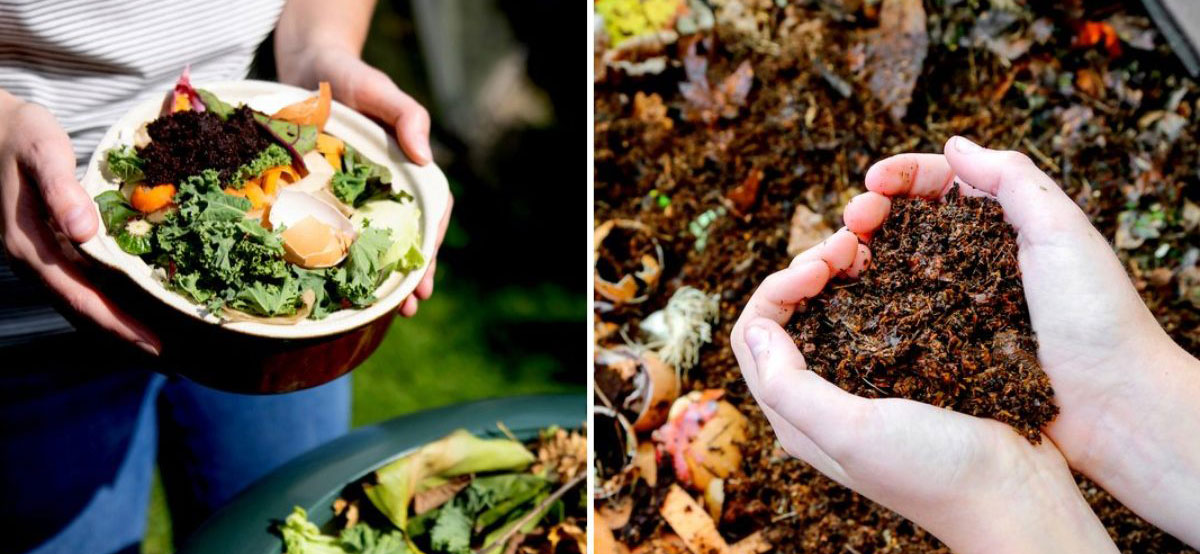24 Hours Food Composter Machine – Creeks Composter
A food composter machine is a device that converts organic waste materials into nutrient-rich compost that can be used as fertilizer for plants. These food composter machines can compost food waste, such as vegetable and fruit scraps, coffee grounds, eggshells, and yard waste, such as grass clippings and leaves.
Often using mechanical, biological, or thermal methods. The goal is to recycle organic waste, such as leftover food, kitchen scraps, and sometimes even yard waste, into nutrient-rich compost that can be used to improve soil quality. These food composter machines are commonly used in households, restaurants, or commercial settings to reduce food waste and create an eco-friendly byproduct.
Using a Food Composter Machine can help to reduce the amount of organic waste that ends up in landfills, which can contribute to greenhouse gas emissions and other environmental problems.
Additionally, composting can help to enrich soil and promote healthy plant growth, making it a great way to reduce waste while improving the health of your garden or yard.
Fully automatic bio-mechanical food composter machine can convert organic waste added to the machine into nitrogen-rich compost by reducing its volume by almost 70-80% of the original. Creeks Composter is a continuous composting system.
The process of composting with CREEKS COMPOSTER is very simple:
1. Input: Deposit segregated organic waste from the inlet of the machine along with 20-25% carbonaceous material (i.e. wood chips, pallets) and 0.1 % composting culture.
2. Process: Mixing, curing, and composting will be automatically done inside the machine. Compost will be collected in a bag/bin from the rear end of the machine. Replace the compost bag/bin when it is full.
3. Output: Very pleasant sweet-smelling compost.

Creeks food composter machines decompose all types of food waste in an aerobic environment using controlled parameters such as temperatures, agitation, and airflow.
Creeks food composter machines are embedded with a specially designed crusher unit that helps to shorten the normally long composting duration to only 24 hours. This makes Creeks composters a state-of-the-art machine in the food waste composting industry.
Our units also feature sophisticated ventilation and a bio-enzyme filtration system that promotes the elimination of unpleasant smells. You can add in all types of food waste including fruit, vegetables, grains, dairy, meat, fish, poultry, eggshells, and crustacean shells, whether they are cooked or uncooked.
TURN FOOD WASTE INTO A USABLE ASSET
With the use of Creeks food composter machines, food waste can be reduced by up to 80% within just 24 hours and transformed into a bio-organic compost that you can use in many different ways, including:
• In your garden
• To nourish plants and herbs
• To promote green landscaping
• Donating compost to a local community initiative as a form of CSR
Benefits of Food Composter Machine
1. Reduction of Food Waste: Composting, reduces the volume of waste in landfills and mitigates the environmental impact of food waste.
2. Production of Nutrient-Rich Compost: Food waste composters create nutrient-rich compost that can be used to enrich soil in gardens, lawns, and agricultural settings.
3. Energy Savings: It also reduces the need for transporting waste over long distances to disposal sites.
4. Reduced Greenhouse Gas Emissions: Composting organic waste in a controlled, aerobic environment produces fewer greenhouse gases (like methane) compared to anaerobic decomposition in landfills. This helps mitigate climate change and reduces your carbon footprint.
5. Cost Savings: Reduced waste disposal fees, lower landfill taxes, and savings on fertilizer costs can make composting a cost-effective waste management option.
6. Improved Soil Health: The use of compost enhances soil health by increasing microbial activity, improving soil structure, and promoting beneficial organisms.
7. Resource Conservation: By composting, you conserve valuable natural resources such as water, energy, and minerals that would otherwise be used in the production of chemical fertilizers.
A food waste composter works by providing an environment conducive to decomposition through oxygenation, insulation/heat generation, moisture control, and regular mixing of contents. By utilizing these processes effectively, these machines help convert kitchen scraps into valuable compost that benefits both our gardens and reduces landfill waste!
